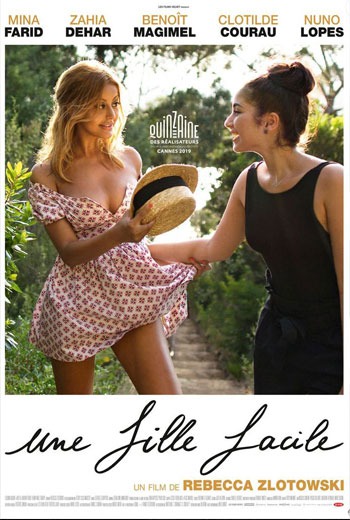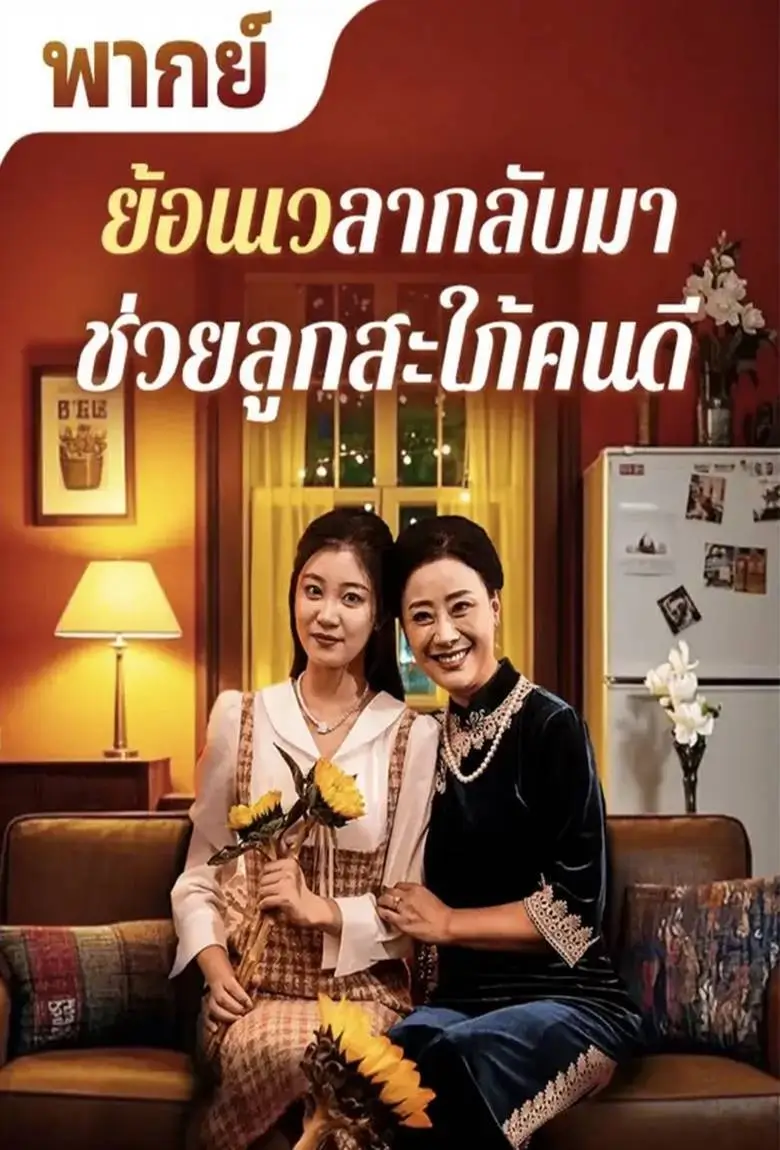An Easy Girl สาวใจง่าย (2019) บรรยายไทย


หมวดหมู่ : หนังตลก , หนังดราม่า , หนัง Netflix
เรื่องย่อ : An Easy Girl สาวใจง่าย (2019) บรรยายไทย
ชื่อภาพยนตร์ : An Easy Girl สาวใจง่าย
แนว/ประเภท : Comedy, Drama
ผู้กำกับภาพยนตร์ : Rebecca Zlotowski
บทภาพยนตร์ : Teddy Lussi-Modeste, Rebecca Zlotowski
นักแสดง : Mina Farid, Zahia Dehar, Benoît Magimel
วันที่ออกฉาย : 28 August 2019
เด็กสาววัยรุ่นหลงรักวิถีชีวิตแสนสำเริงสำราญของญาติสาวระหว่างใช้เวลาช่วงฤดูร้อนด้วยกันที่เมืองคานส์ ขณะเดียวกัน เธอพยายามค้นหาตัวตนและคุณค่าของตัวเองไปด้วย

IMDB : tt9632590
คะแนน : 5.5
รับชม : 3829 ครั้ง
เล่น : 1156 ครั้ง
The latest from Rebecca Zlotowski is a Cannes-set story of a 16-year-old who spends the summer with her sexually adventurous cousin (played by French tabloid sensation Zahia Dehar).
Recovering from the resounding dud that was Natalie Portman starrer Planetarium, French writer-director Rebecca Zlotowski offers up something much more enticing in An Easy Girl (Une fille facile): a relaxed, warmly sensual coming-of-age drama so steeped in ripe South of France flavor — sun, sea, lots of skin and a bit of bling — that you practically want to eat it by the spoonful.
The movie’s pitch and background reek of Euro arthouse exploitation: A 16-year-old spends the summer playing wing woman to her sexually adventurous cousin, who’s played by Zahia Dehar, the French-Algerian model primarily known as the then-underage prostitute in a 2009 scandal involving France’s national soccer team. But while An Easy Girl flaunts a classically Gallic nonchalance when it comes to sex, its most surprising quality is a gentle compassion — an ability to delicately question these characters’ choices without wagging a finger or doling out punishments.

Zlotowski proved, with her first two movies (Dear Prudence and Grand Central), to be a highly skilled conjurer of moods but a less surefooted storyteller. In An Easy Girl (which she cowrote with Teddy Lussi-Modeste), the filmmaker brings her stylistic talents to a much sturdier narrative; the plotting is tight, the pacing fleet and the characters developed with care and nuance. The result is by far her best film, brisk, frisky and atmospheric, but with an emotional undertow — a luminous wisdom and wistfulness that catch you off guard.
An Easy Girl starts with Sofia, a statuesque 22-year-old stunner, strolling through and then sitting in the softly lapping turquoise waters of a cove near Cannes. These opening shots pay direct homage to Eric Rohmer’s La Collectionneuse (1967), which begins in similar fashion (and which Zlotowski has cited as an influence). But unlike that classic tease-a-thon, which was driven by the perspective of the two men orbiting the titular temptress, An Easy Girl is firmly grounded in the experiences of its female protagonists: high-schooler Naima (radiant newcomer Mina Farid) and her cousin Sofia (Dehar), who glides in from Paris and ignites Naima’s world — and the film — with her insatiable appetite for pleasure and dual superpowers of seduction and provocation.
Not to mention her designer accessories. Naima, who lives with her mom (Loubna Abidar), a cleaner at a fancy local hotel, is set to spend her vacation palling around with gay BFF Dodo (comic firecracker “Riley” Lakdhar Dridi). But it takes little more than a Chanel bag gifted to her by Sofia — a symbolic initiation into a lifestyle of leisure and languor — for Dodo to be relegated to the sidelines.

With her curve-hugging clothes, breathy voice and gaze that appears vacant until you pick up on a vague air of sadness (we learn that her mother has recently died), Sofia invites certain assumptions, not all of them flattering. Yet, as played by Dehar, she’s also sweet-tempered and nurturing in a big-sisterly way — a glamazon with a good heart. You get why Naima loves and looks up to her.
Zlowtowski and DP George Lechaptois film Sofia like the succulent object of desire she is. In one scene, as she sunbathes, the camera drinks in her honeyed form, lingering over her downy back, plump buttocks and never-ending legs. Dehar’s pouty, performative femininity brings to mind a young Brigitte Bardot, a reminiscence An Easy Girl encourages when Sofia responds to the clumsy advances of two horny teen boys on the beach by caressing herself and pointing out how soft her skin is, ahem, everywhere; the moment echoes the opening of Godard’s Contempt, in which Bardot’s character asks her husband (Michel Piccoli) to evaluate various parts of her body.
But the filmmakers also give Sofia the chance to articulate her worldview. As she declares to her cousin, “I’m not interested in love,” explaining that she’s seeking “sensations, adventures.” Soon enough she finds them with suave Brazilian art dealer Andres (Nuno Lopes), who invites her onto his yacht and into his bed. Naima tags along, bonding with Andres’ best friend/fixer, Philippe (a touching Benoit Magimel), as the foursome spend several weeks hitting up VIP sections of night-clubs, dining in the finest restaurants and lounging on Andres’ boat.
Refreshingly, An Easy Girl is not the tale of an innocent corrupted. Naima is more observer than participant, and a few close-ups of her waiting as Sofia and Andres’ moans emanate from another room capture hints of regret and guilt. Moreover, Naima’s fascination with Sofia is not colored by delusion; she’s clear-eyed about who her cousin is and how she operates, as well as her own boundaries.
The fact is, Sofia is fun — and, for Naima, she’s family. She’s also no fool. Though she largely presents as a blank slate onto which men can project their fantasies — minimal eating in front of suitors and more listening than talking are two of her golden rules — the film suggests that there’s a sort of self-protective power and economy in Sofia’s approach. She’s trying to get the most out of the game of life without having to show her cards.
And there are indeed cards to show. When a wealthy friend of Andres’ (played with deadly precision by Clotilde Courau) casually attempts to humiliate her, Sofia puts her in her place without breaking a sweat — or sinking to her level. Zlowtowski points to our own assumptions about the mutual exclusivity of beauty and intelligence, as well as our stubborn, if sometimes unconscious, conceptions about the “acceptable” way for women to wield and enjoy their sexuality.
An Easy Girl insists on Sofia’s humanity and her autonomy, but it doesn’t glorify her. While rarely coming off as schematic, the screenplay uses the skepticism of secondary characters like Dodo and Naima’s mother to challenge Sofia’s notions of freedom. A look of withering disappointment directed at Naima by a chef for whom she was supposed to intern when he sees her eating at his restaurant with her rich new friends also speaks volumes. Zlotowski subtly sets up, rather than imposes, a moral framework for her story.
The movie has a similar lightness of touch in its handling of class, though, in typical French fashion, it’s timid when it comes to matters of race (Naima, Sofia and Dodo are of North African origin, something that is never explicitly acknowledged). That’s not necessarily a bad thing. Beneath its breeziness, An Easy Girl already has a lot on its mind, including materialism, misogyny, the acquisition of self-knowledge and what it means to really accept another person.

That last theme is embodied beautifully by Farid, whose accessibly warm, watchful Naima makes for an ideal audience surrogate, providing cues as to how we should perceive the more elusive Sofia; her openness to this sometimes troubling, perhaps troubled but never less than fiercely alive young woman — whom Dehar plays with haunting poise and quicksilver flashes of wit — becomes our own.
In a lovely touch, Zlotowski’s song selections frequently skew classical (Schubert, Debussy, Vivaldi) where one might have expected pop. It’s an almost contrapuntal, yet supremely fitting use of music in a story that, under its very modern surface, contains some timeless truths.














